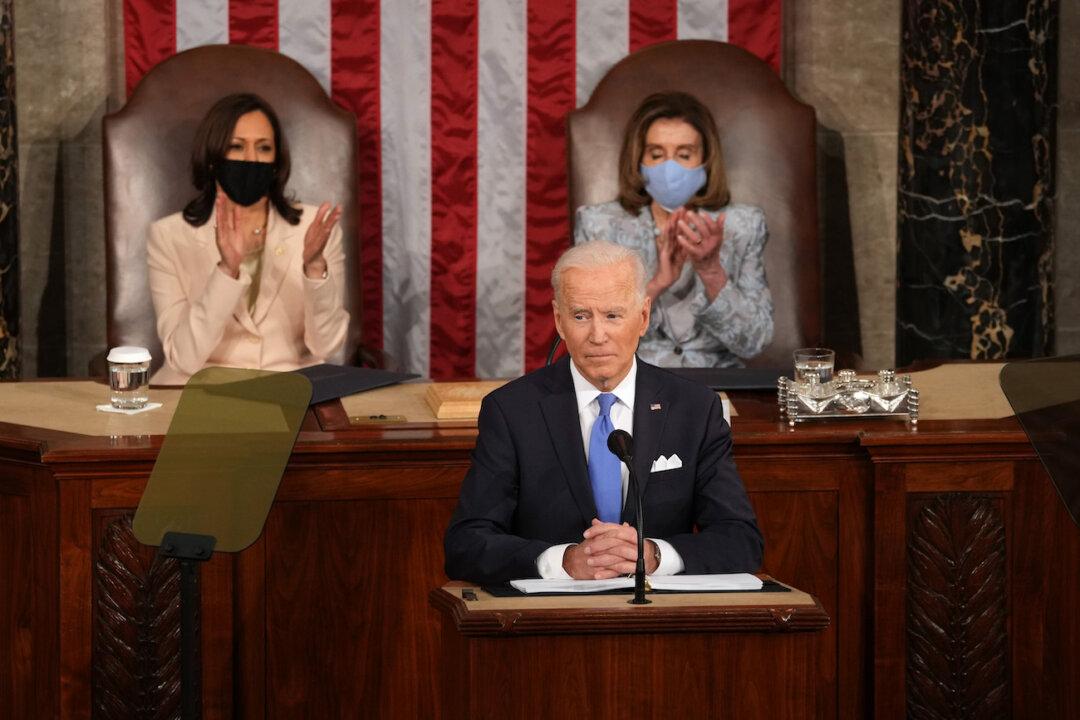President Joe Biden’s $6 trillion in early-term spending initiatives—his $1.9 trillion American Rescue Plan that passed with zero Republican votes, along with his proposed $2.3 trillion American Jobs Plan and $1.8 trillion American Families Plan—have drawn sharply critical reactions from Republicans, and more muted criticism from some Democrats, for their lofty price tags.
Biden unveiled his newest legislative proposal, the sweeping $1.8 trillion package for families and education, during his first speech to a joint session of Congress on April 28, calling it a “once-in-a-generation” investment that would bring lasting benefits to the economy, expand the middle class, and reduce child poverty. The plan includes $1 trillion in spending on education and child care and $800 billion in tax credits aimed at middle- and low-income families, funded mainly by tax hikes on wealthier Americans.





